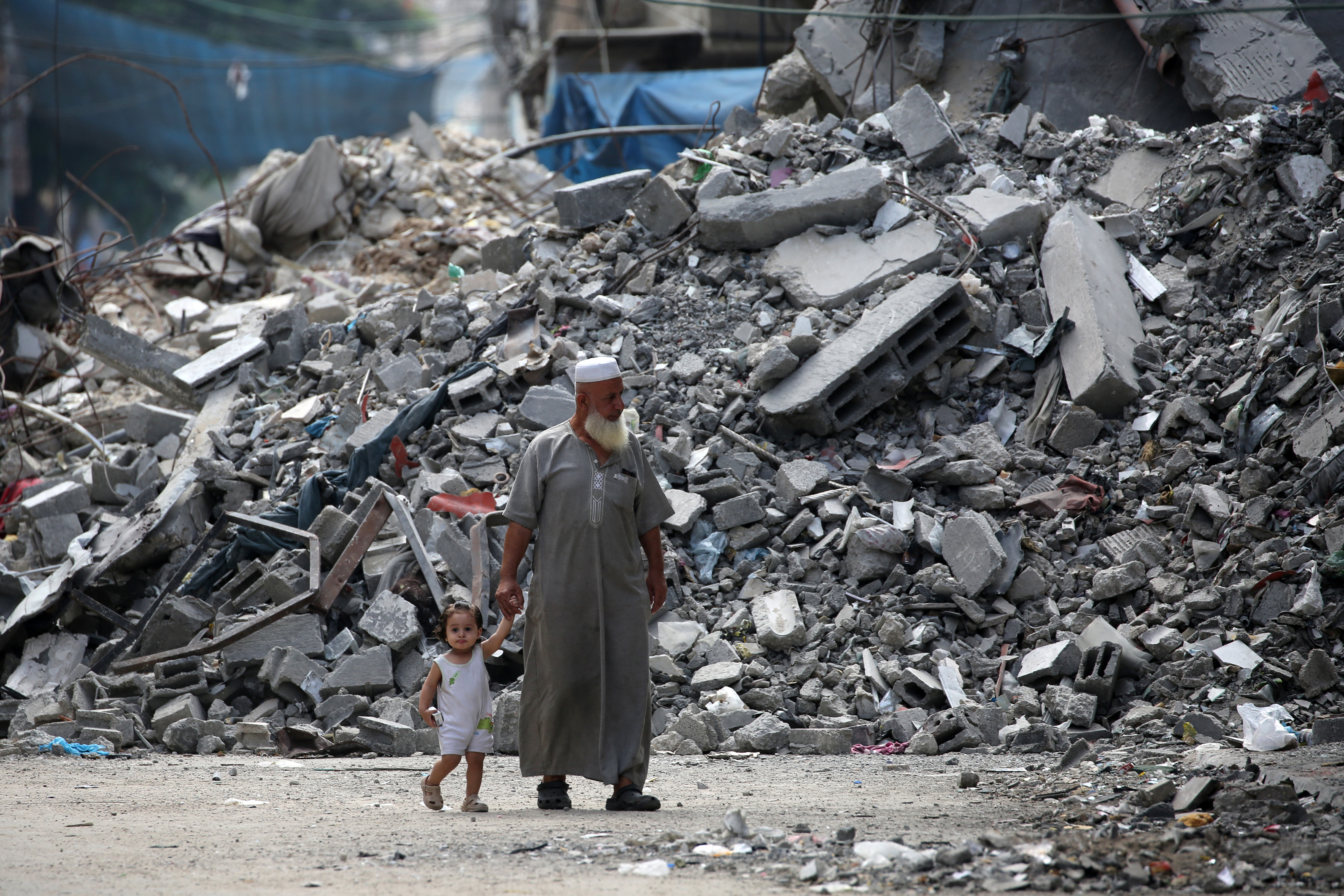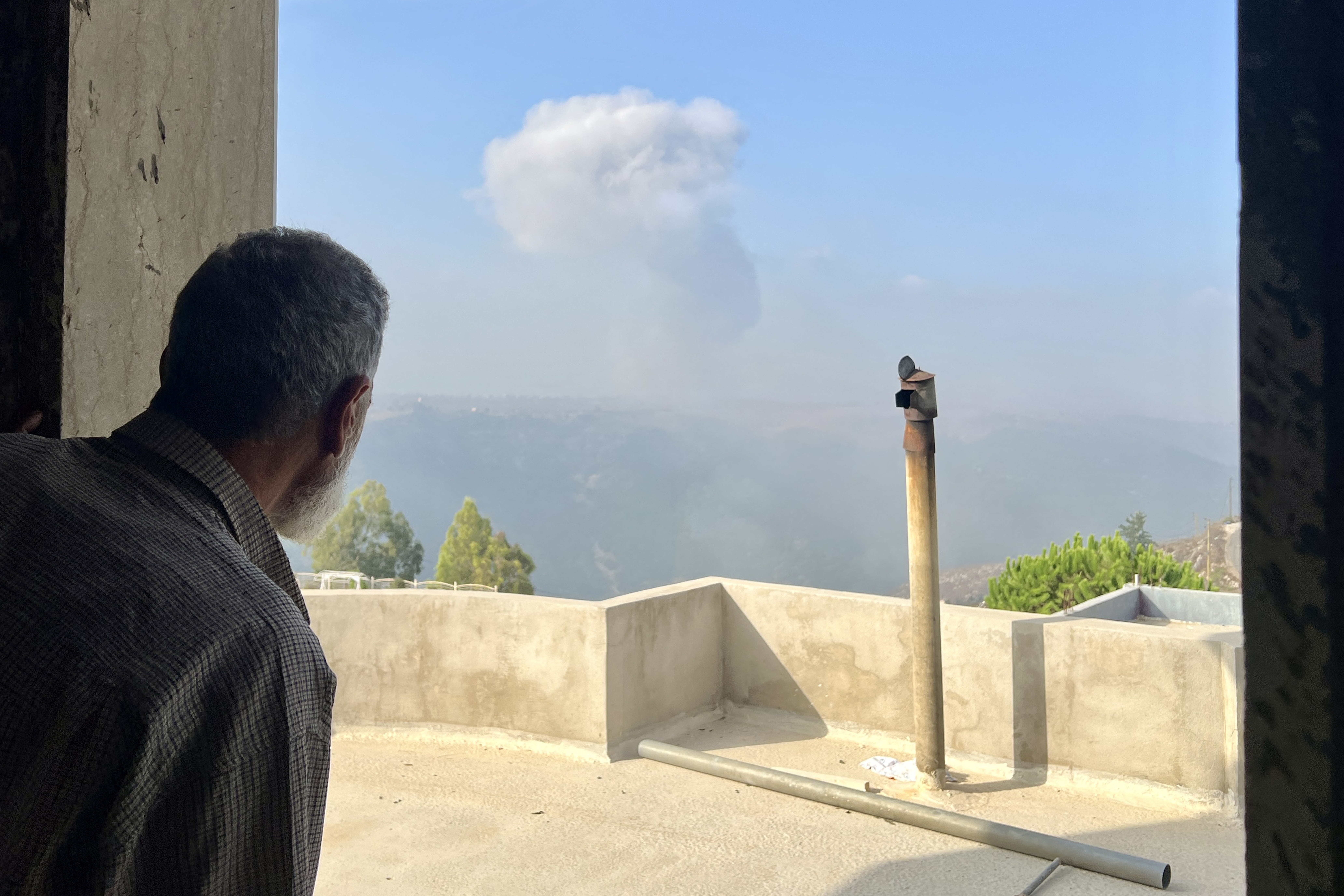
The latest round of Gaza cease-fire talks ended with no deal, raising suspicions of delaying tactics and a diplomatic smokescreen of a joint “Israel-US project serving Israel’s campaign of destruction”, experts said.
Despite optimistic statements from the United States, the resumption of week-long talks in Cairo, Egypt — and earlier in Doha, Qatar — ended on Aug 25 with neither Hamas nor Israel reaching an agreement.
Majd Abuamer, a researcher at the Arab Center for Research and Policy Studies in Doha, Qatar, said it was important to reaffirm that Israel’s war on Gaza is a joint Israeli-American project.
Abuamer told China Daily that the US cannot be seen merely as a supporter of Israel or as a mediator in the cease-fire talks, noting that talks are focused on technical and logistical details.
ALSO READ: No agreement in Gaza ceasefire talks in Cairo; process to continue
“The real objective behind the ongoing negotiations in Doha and Cairo … is to divert attention from the situation in Gaza and to give Israel more time to complete its campaign of destruction,” Abuamer said.
Israel has sustained its retaliatory military operations amid talks even throughout Paris Olympic Games, issuing evacuation orders as it continued bombing schools and refugee camps.
The latest strike came on Aug 26 at the Al-Ezz Bin Abdul Salam School, which has been housing displaced Palestinians. Deaths and injuries were reported.
The number of Palestinians killed by the ongoing Israeli attacks on Gaza had risen to 40,405, Gaza-based authorities reported on Aug 25.

Abuamer noted that Hamas had previously accepted nine rounds of negotiations, but Israel refused them just as it refused the latest round.
“This underscores that the true aim of these negotiations is to serve as a cover for Israel’s actions in Gaza,” said Abuamer.
He said we should not forget that reaching a cease-fire agreement does not necessarily entail ending the war, noting the examples of December 2008 and May 2023.
“Despite reaching agreements, Israel often fails to adhere to them and instead continues with its policy of assassinations and bombings, which reignites the conflict,” he added.
ALSO READ: Envoy urges Israel to immediately cease military operations in Gaza
Hamas said its delegation demanded that Israel accept what had been agreed upon on July 2, based on US President Joe Biden's proposal and the United Nations Security Council resolution, Xinhua News Agency reported.
Furthermore, the delegation reportedly stressed that any agreement must include a permanent cease-fire, Israel’s complete withdrawal from Gaza, the return of residents to their homes, as well as a serious prisoner-hostage exchange.
One of the intense points of contention was Israeli Prime Minister Benjamin Netanyahu’s demand that the Israeli Defense Forces continue to be deployed along the Philadelphi Corridor that stretches the entirety of Gaza’s border with Egypt, US media outlet Axios reported earlier.
On Aug 23, White House National Security Spokesperson John Kirby denied to reporters that the cease-fire talks were on the verge of collapse. Israeli authorities have said they join the talks on their conditions.

“The cease-fire talks in Cairo seem less about peace and more about power plays, with progress being announced but nothing concrete emerging” Arhama Siddiqa, a research fellow at the Institute of Strategic Studies Islamabad in Pakistan, told China Daily.
She said negotiations have become “a well-worn tool in the US-Israel strategy” that gives the appearance of diplomacy but the situation on the ground tells a much different story.
According to Siddiqa, the “narrative of progress” allows Israel to continue its operations, with each passing day bringing more destruction to Gaza.
ALSO READ: Netanyahu says Israeli troops not to leave Gaza-Egypt border
“It's hard to ignore the suspicion that this is a delaying tactic, a diplomatic smokescreen behind which Israel carries out its military objectives,” she said.
“The US speaks of progress, but the lack of tangible results suggests the talks are more about stalling than stopping the violence,” said Siddiqa.
She said the question of the Philadelphi Corridor only deepens the deadlock, with its future tied to broader strategic goals rather than immediate peace.

Furthermore, she said the delay seems to work in Israel's favor.
“Each day the talks stretch out, more ground is covered, more homes are destroyed, more lives are lost,” Siddiqa said.
“The longer these negotiations drag on, the more they look like a convenient cover for continuing the offensive, rather than a genuine effort to broker peace,” she said.
“The so-called progress in cease-fire talks is without doubt Israel's play for time, giving diplomacy just enough lip service to cover Gaza’s growing rubble,” she added.



